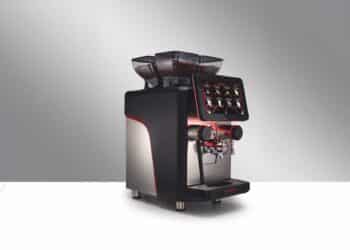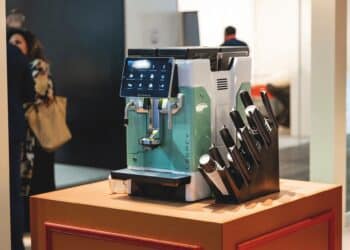Changes to the Q Grader program are set to drastically alter how coffee is assessed, but is it for the better?
The coffee value chain is made up of constantly moving parts. It’s an industry where nothing stays the same for long and innovation reigns.
Sometimes, changes are small in scale and may only impact a solitary farm or individual roaster. Other times, though, they come in the form of sweeping policy reform that changes the landscape.
The announcement of the evolution of the Specialty Coffee Association’s (SCA) Q Grader qualification falls somewhere around the latter category. Since its implementation in 2004, the licensing process for Q Grader – a globally recognised certification for coffee professionals that validates their skills in assessing and evaluating coffee quality – has remained largely untouched despite significant industry volatility. Until now.
After more than 20 years of operation, this change will be one of the largest shifts in the program’s implementation.
Starting from 1 October 2025, the Q Grader program will evolve to be more closely aligned with the SCA’s Coffee Value Assessment (CVA), which was implemented in 2022 to offer a broader and more holistic approach to coffee assessment.
The SCA says while the initial program has played an important role in aligning the global coffee industry, it must adapt to keep up with a rapidly evolving sector.
“At the heart of this shift is a belief in a more equitable value distribution across the supply chain. As the organisation behind the cupping form that became the industry standard 21 years ago, the SCA is in a unique position to lead the evolution of how we evaluate coffee,” the SCA tells Global Coffee Report.
“Given the original 2004 cupping form – or versions of it – is still widely used across the industry, we knew introducing a new approach to assessing value would take time and care.
“The original form played a critical role in establishing a shared sensory language. However, it hasn’t evolved alongside the industry. Today, we recognise it no longer reflects the best practices in sensory science and fails to account for the many factors that influence the actual value of the coffee.”
This closer alignment to the CVA looks to be a natural progression for the Q Grader, given the SCA’s desire to see its new system adopted across the globe.
The CVA utilises four assessment types to create a more complete picture of any given coffee, and was developed in consultation with the industry, scientists, and researchers.

These four assessments – physical, descriptive, affective, and extrinsic – are, ideally, completed independently of each other to avoid bias.
The SCA started its review of the cupping system back in 2020 to more closely align the Q Grader to address gaps that have emerged in the system as the industry has evolved.
“It offers a more complete and modern framework – one that brings together sensory analysis, physical quality, market context, and relevance to buyer preferences,” says a spokesperson from the SCA.
“Aligning the Q Grader program with the CVA ensures cuppers are not only experts in flavour evaluation but are also equipped to assess coffee in ways that are more reflective of how values are determined in the real world.”
For those currently engaged in receiving their Q Grader licence, or looking to achieve the qualification prior to 1 October 2025, nothing will change.
The Coffee Quality Institute (CQI) will remain involved in delivering the curriculum until the changeover date, when the 20-plus years of partnership in delivering the program will end.
At the time of the initial announcement revealing the changes, CQI CEO Michael Sheridan expressed his pride in the organisation’s extended involvement in global coffee assessment.
“We are proud of the role CQI has played in the first 20 years of the Q, and we are honoured by the way it has been embraced in the coffee industry,” says Sheridan.
Perhaps the largest change, though, is the decreasing importance of the score of the coffee. While scoring will remain an important part of the process, the SCA says the evolution of the industry means more factors must be considered.
“Scoring is still part of the picture, but we’re moving away from treating it like the whole story,” the SCA says.
“The new program breaks it down – what coffee tastes like, how it was grown or processed, how someone might respond to it emotionally. It’s not about replacing scores, it’s about giving more context to what those numbers mean.
“It gives it a wider lens. Instead of only focusing on flavour or chasing a number, it trains cuppers to assess and communicate everything that adds value to a coffee, from its physical traits to its story. It reflects how professionals actually make decisions in the real world, whether they’re a producer, trader, buyer, or quality consultant.”
At the time of writing, the CVA is in the process of being adopted by some of coffee’s largest international production markets, including Brazil, Colombia, and Indonesia.
The Brazilian Specialty Coffee Association, Colombian Coffee Growers Federation, and Specialty Coffee Association of Indonesia have all signed Memorandums of Understanding with the SCA to implement the CVA.
This means it is in the process of being implemented in three of the four largest coffee producing countries on the planet.
The SCA says the adoption of the program by these nations adds further credibility to the CVA.
“Over the past two years we’ve piloted courses, lectures, and dedicated CVA events, developed comprehensive training materials, and gathered feedback from a global network of cuppers, producers and educators. This deliberate process has helped ensure the CVA is practical, effective, and globally relevant,” the SCA says.
“When major producers adopt the CVA it’s a sign that this approach works not just in theory but on the ground. It helps producers speak the same quality language as buyers, which can lead to better recognition, better prices, and better alignment across the value chain, and it sets an example other countries can follow.
“Integrating the Q Grader program is about more than just updating content – it’s about aligning the program with what the industry needs today and supporting professionals as they adapt to a more complete and inclusive way of assessing coffee.”

However, the Q Grader assessment will largely remain the same until the October changeover to allow the large-scale coordination of the upcoming changes.
Those with certain qualifications, including the SCA Sensory Skills Professional Certificate, current or lapsed Arabica or Robusta Q Graders, Q Instructors, and Q Assistant Instructors can also fast track their evolved Q Grader licence by completing the CVA for Cuppers course by 31 December 2025.
The SCA emphasises that the transition has been shaped with the global community in mind.
“Changing a program this foundational doesn’t happen overnight—and it shouldn’t,” the SCA says.
“We’ve been listening closely, consulting widely, and working alongside instructors, producers, and cuppers to build a path forward that’s thoughtful, inclusive, and clear.
“This phased approach was designed to give the community time to adapt, while continuing to offer access to existing courses and creating new, supported entry points into the updated system. It also ensures the finalisation of the new Q Grader curriculum, the onboarding of instructors, and the honouring of all CQI-led courses scheduled through 30 September.”
This article was first published in the July/August 2025 edition of Global Coffee Report. Read more HERE.





